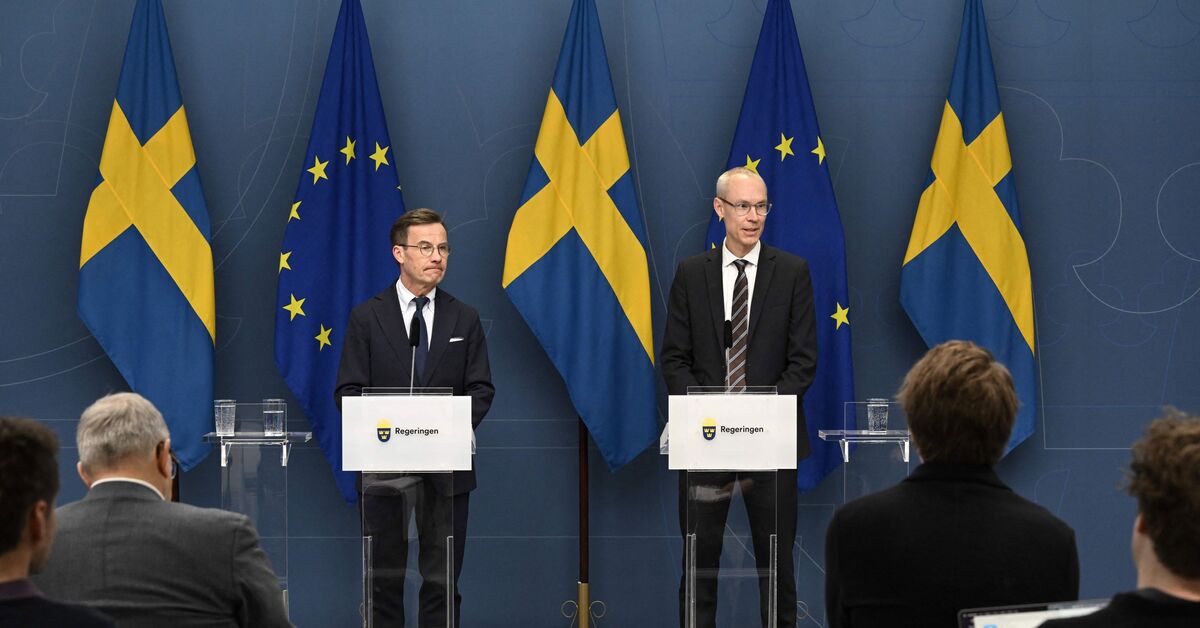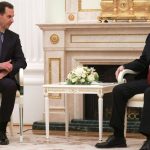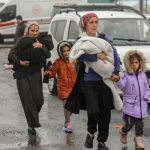As Finnish President Sauli Niinisto is set to travel to Istanbul this week, Turkey’s President Recep Tayyip Erdogan signaled Wednesday that Turkey would soon ratify Finland’s NATO membership.
Asked whether the Turkish parliament can begin Finland’s ratification process next week, “God willing,” said Erdogan. “We will fulfill our duty.”
Niinisto, who will travel to Turkey on Thursday, is set to meet with Erdogan in Istanbul on Friday.
Following the Russian invasion of Ukraine, both Nordic countries abandoned their historical military non-alignment policies, announcing their bids to join the transatlantic alliance, which requires a consensus of all 30 members. Ankara set out a series of demands from both Stockholm and Helsinki in return for its support. Under a NATO-brokered deal, the Nordic countries pledged to address Turkey’s security concerns and became “official invitees” to the alliance.
Ankara argues that while Finland fulfilled its promises, Sweden has more progress to make.
The latest round of negotiations in Brussels last week yielded only a little progress, as Sweden Prime Minister Ulf Kristersson publicly acknowledged the possibility of separate accessions for the first time. Kristersson said Tuesday that the likelihood of two countries’ joining the alliance on different dates has increased in recent weeks.
“It is not out of the question that Sweden and Finland will be ratified in different stages,” he was quoted as saying by the Swedish press.
Finland, which had previously announced that it would not join NATO without Sweden, in solidarity with its western neighbor, later gave off mixed signals. The Nordic country shares a more than 1,300-kilometer border with Russia.
According to Nicholas Heras, senior director for the strategy and innovation department at the Newlines Institute, Helsinki may consider readjusting its position.
“Helsinki will do what it has to do to get under the NATO umbrella,” he told Al-Monitor. “Finland, under its current government, also views Russia even more acutely as a long-term threat to its national sovereignty and territorial integrity than Sweden.”
Both the US and NATO Secretary General Jens Stoltenberg have been pressing for a joint expansion in a bid to welcome the Nordic countries during the alliance’s upcoming summit in Vilnius on July 11-12.
“The preference of most NATO members — and certainly the Biden administration’s preference — is for both Finland and Sweden to join NATO together,” Heras added, but the reality is that Washington “will take what it can get.”
Erdogan’s spokesman and foreign affairs adviser Ibrahim Kalin visited Washington this week. White House National Security Advisor Jake Sullivan “underscored the United States’ view that Sweden and Finland should become members of NATO as soon as possible,” according to an American readout.
The Turkish readout for the meeting, meanwhile, said Kalin stressed that Sweden and Finland needed to fulfill their commitments to accelerate the process.
“The Biden team will fight tooth and nail to convince Erdogan to back down and allow joint accession,” said Heras.
Yet, at a time when the Turkish government is facing increasing political pressure over its slow response to the devastating Feb. 6 earthquakes and the rising cost of living before critical elections on May 14, softening his stance might prove hard for Erdogan.
“It is entirely possible that [Erdogan] will tell Washington that they can either have Finland in, or both Finland and Sweden out. If given that choice, Biden’s team would likely blink and say ‘Fine, Finland in,’ and wait for a more amenable approach from Ankara sometime in the future,” Heras opined.
Turkey’s extradition request for dozens of people stands out as the major impasse that is stalling the Swedish bid. The Turkish government also seeks asset freezes and activity restrictions against groups that Ankara considers terrorist organizations. Sweden is home to many dissidents fleeing Turkey, including a sizable Kurdish diaspora which makes up some 1% of the total Swedish population.
A Quran burning near the Turkish embassy in Stockholm dealt a further blow to the already ailing negotiations in December, prompting Ankara to pause three-party talks. The talks resumed last week in Brussels after the post-disaster diplomacy following the twin earthquakes that killed more than 50,000 people in Turkey and Syria.
Source:Al-Monitor
***Show us some LOVE by sharing it!***



